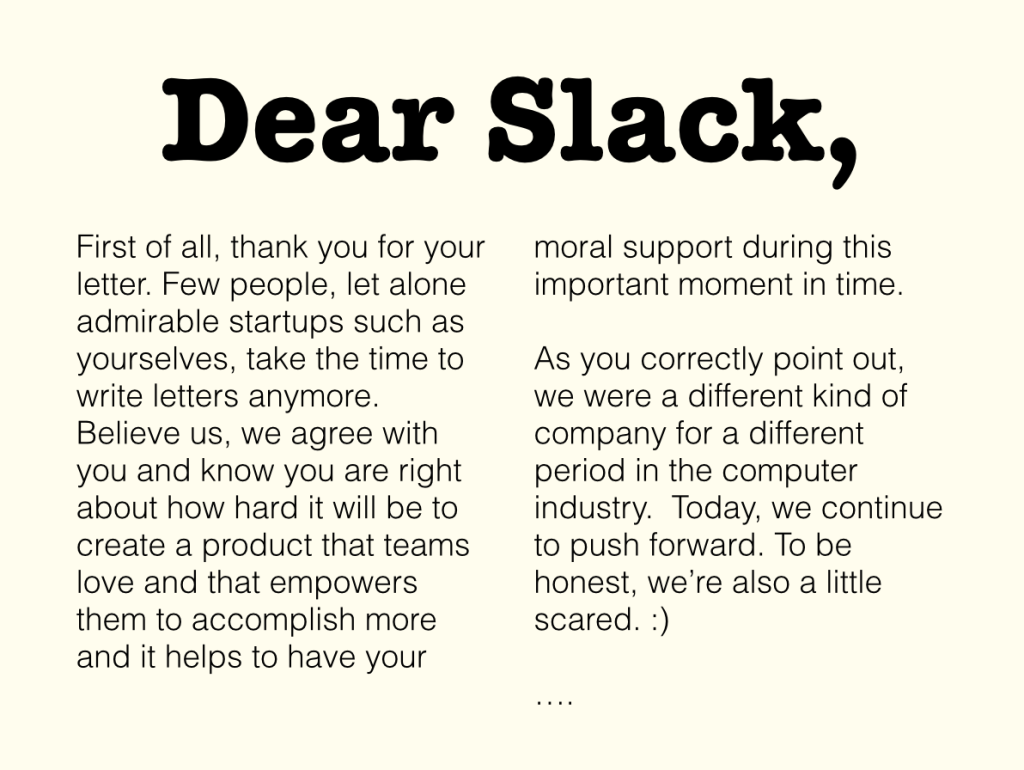How Microsoft should respond to Slack’s letter
 I find Slack’s recent move to publish an open letter to Microsoft incredibly interesting. This in response to Microsoft’s upcoming launch of it’s Teams product. The traditional strategy, I suppose, would be for the larger company to ignore such a message as a marketing ploy. Nonetheless, it certainly would be fun if Microsoft would reply.
I find Slack’s recent move to publish an open letter to Microsoft incredibly interesting. This in response to Microsoft’s upcoming launch of it’s Teams product. The traditional strategy, I suppose, would be for the larger company to ignore such a message as a marketing ploy. Nonetheless, it certainly would be fun if Microsoft would reply.
I’m sure I haven’t analyzed it enough from all angles, but this just seems like a unique opportunity for Microsoft to communicate the type of company it seems to have become (though still on that long road to getting “there”). By responding to a smaller company (in valuation and sales only) directly and bucking conventional marketing wisdom, it can send the right type of message. Obviously, I have the luxury of not worrying about multibillion dollar liabilities and other scary things like that, but we’ll forget about that small detail for now.
As has been reported, Microsoft’s CEO, Satya Nadella, is blazing a new trail for the company more in tune to the future than it’s PC-focused strategy of before. Though there’s still a long road strewn with able competitors, initial results would seem to indicate that things are headed in the right direction. Nonetheless, it must be said that competing with one of the most admired young startups on the planet (i.e., Slack) is a daunting task. I’ve been a user and promoter of their product for the last two years.
Assuming Microsoft is up to the task of competing with such an agile and able startup, I really think that publishing a reply would send the type of message that they want to send. If such a reply could have the following characteristics, this would make it all the more effective:
- Be humble. I’m sure the Microsoft team admires the Slack team and their CEO, Stewart Butterfield, and it would be great to say just that. Also, I think it’d be fine to admit that they are facing a large challenge, but are doing so with enthusiasm. This would be a good time to talk about a trait that Microsoft has always had: persistence.
- Be inclusive. Offer a vision of the world (which I believe exists) where Microsoft Teams works seamlessly with Slack.
- Have a sense of humor. This would be a bit of a shocker, but if it’s aligned with the new voice that Microsoft wants to project, it’d certainly communicate a new Microsoft.
Obviously, I have no business giving advice to a multi-billion dollar corporation and I wasn’t planning on writing this, but I couldn’t help weighing in. Several years ago, I stuck my big nose into someone else’s marketing message (Zoho) and it actually had an effect so I’ve developed a bad habit. 
